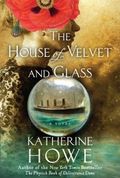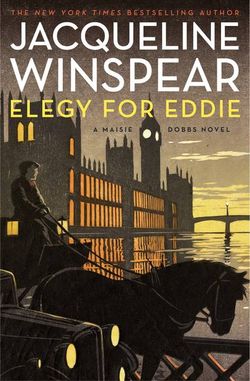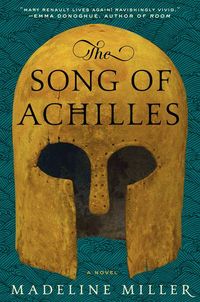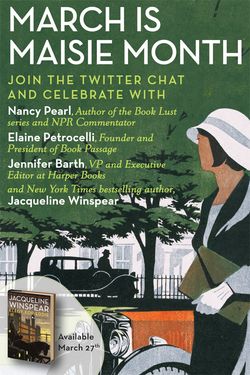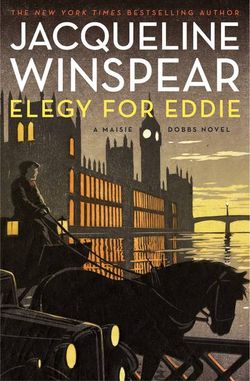 Hello, lovelies! Nothing pleases me more than hearing from a librarian that (s)he loved a book I've sent. So this week was off to a good start when I received this rave review email from Eleanor Bukowsky of the Midwood Branch of Brooklyn Public about Jacqueline Winspear's Elegy for Eddie…
Hello, lovelies! Nothing pleases me more than hearing from a librarian that (s)he loved a book I've sent. So this week was off to a good start when I received this rave review email from Eleanor Bukowsky of the Midwood Branch of Brooklyn Public about Jacqueline Winspear's Elegy for Eddie…
***
"I have to put everything right."
In the prologue of Jacqueline Winspear's Elegy for Eddie, sixteen-year-old Maudie Pettit gives birth to a baby boy in the stalls of Starlings Brewery, where she is employed as a cleaner. Maudie, who was born in a workhouse, has additional jobs in a pickle and paper factory; she is determined to provide a better life for her child than she had. As he grows into a man, Maudie's son, whom she names Eddie, develops an almost mystical ability to calm agitated horses.
Forty-six years after Eddie's birth, five costermongers approach private inquiry agent, Maisie Dobbs, whom they knew when she was a little girl. The men are convinced that Eddie, who died in what appears to have been a tragic accident in a paper factory in Lambeth, was actually murdered. Maisie is incredulous, since everyone liked Eddie; most people thought of him as a gentle soul with a special gift for settling restless horses. Partly to help Maudie learn the truth and also to satisfy herself, Maudie decides to look into Eddie's death.
Elegy for Eddie is another well-crafted novel from the gifted Winspear. With the help of her trusted assistant, Billy Beale, Maisie questions Eddie's relatives and acquaintances and reconstructs the victim's final weeks of life. She eventually learns some surprising things about Eddie, whom everyone considered to be "a little slow." Maisie suspects that Eddie was "a pawn in a bigger game; a game he was not equipped to comprehend." Her investigation occurs against the backdrop of Hitler's rise to power; Maisie's reluctance to make a commitment to her lover, Viscount James Compton; her discomfort with her inherited wealth; and a disconcerting realization that her eagerness to help others can sometimes come across as overbearing and intrusive. This is an engrossing, atmospheric, and moving book about an inimitable heroine who is clever, independent, brave, compassionate, and increasingly aware that she has difficult and painful decisions to make concerning her future.
***
Thank you, Eleanor, for your input and don't forget to tune into #Maisie month on Twitter. The conversation concludes this Friday, March 30 at 3PM EST with the wonderful Jacqueline Winspear herself!
– Annie

